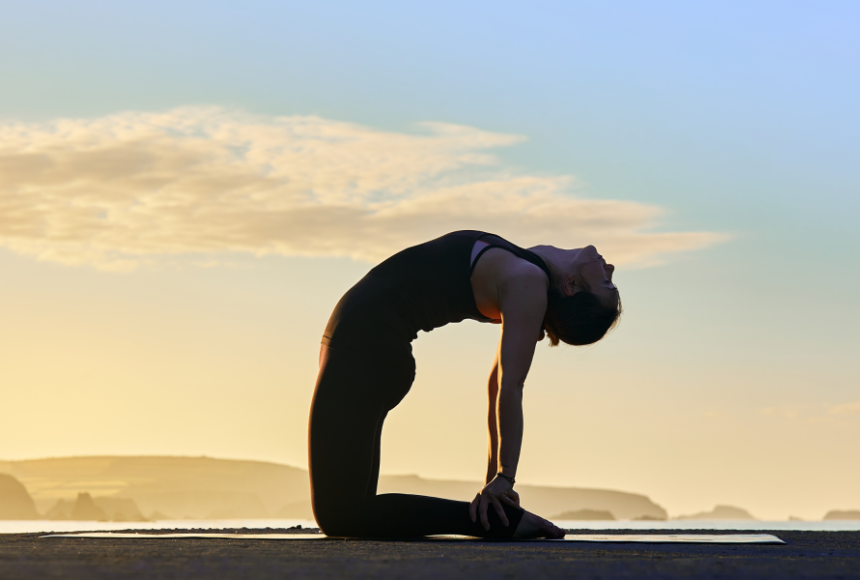How Pilates Improves Mental Health
In this article, we’ll explore how Pilates can reduce stress, improve sleep, and help manage anxiety and depression.

Pilates is widely known for its physical benefits, such as improving core strength, flexibility, and posture, but its impact on mental health is just as significant. When you combine mindful movements with controlled breathing, Pilates will help cultivate a deeper connection between the mind and body. This connection can help reduce stress, improve sleep, and manage anxiety and depression.
In this article, we will explore the mental health benefits of Pilates, focusing on how it supports emotional well-being through mindful practices.
Pilates as a Tool for Reducing Stress
Stress is a common issue for many people today, often stemming from work, personal responsibilities, or overwhelming situations. Pilates offers an effective solution for managing stress by encouraging mindful breathing and focusing on controlled, flowing movements. This combination helps to reduce the production of cortisol, the body’s primary stress hormone.
Unlike high-intensity workouts that may increase stress, Pilates encourages relaxation by activating the parasympathetic nervous system. The practice promotes a sense of calm and allows you to focus entirely on your body and breath, pulling attention away from external stressors. This process helps regulate emotions and decrease the body’s fight-or-flight response, leading to a more balanced mental state.
How Pilates Improves Sleep Quality
Good sleep is essential for mental health, but many people struggle with insomnia or poor-quality rest due to stress or anxiety. Pilates has been shown to improve sleep quality by promoting relaxation and calming the mind. Since the movements in Pilates are designed to align with deep, rhythmic breathing, they help prepare the body for a restful night's sleep.
Studies have indicated that regular Pilates practice can lead to better sleep patterns. The meditative nature of the exercises, combined with its low-impact, calming approach, allows you to unwind, making it easier to fall asleep and stay asleep throughout the night.
Pilates is particularly beneficial when practiced in the evening, as it promotes relaxation without overstimulating the body. For those looking to improve their sleep, even 20 minutes of Pilates before bed can make a significant difference.
Anxiety and Depression Management with Pilates
For individuals dealing with anxiety or depression, Pilates can be a powerful tool. The emphasis on mind-body awareness helps people become more present, providing relief from the racing thoughts often associated with anxiety. The rhythmic nature of Pilates, along with its focus on breathing and movement, provides a sense of control, helping to ease anxious feelings.
Moreover, Pilates has been shown to increase endorphin production, the body’s natural feel-good chemicals, which can help alleviate symptoms of depression. By focusing on precise movements and controlled breathing, Pilates encourages you to shift your attention away from negative thought patterns, creating a positive mental space.
Regular Pilates practice also helps break the cycle of rumination, where individuals may get stuck in negative thoughts. Through its combination of physical activity and mental focus, Pilates helps foster emotional resilience, allowing you to manage stress and negative emotions more effectively.
Pilates and Emotional Balance
Pilates isn’t just about physical movement; it’s also about building emotional control. By practicing deep diaphragmatic breathing, which is central to Pilates, you can learn to better regulate your emotions. This type of breathing stimulates the vagus nerve, which helps balance the nervous system, reducing stress and promoting a sense of calm.
For people who struggle with emotional imbalances, such as feeling overwhelmed or easily frustrated, Pilates can serve as a form of emotional self-regulation. Through mindful movement and breathing, you can improve your ability to manage emotional triggers in everyday life.
How Much Are Pilates Classes?
If you're considering starting Pilates to improve your mental health, you might wonder, "How much are Pilates classes?" The cost of classes can vary depending on the type and location of the studio. Typically, group Pilates sessions range from $10 to $30 per class, while private sessions may cost between $50 and $100 per hour.
While the price of classes can seem high, many studios offer package deals or introductory rates for beginners. Additionally, there are plenty of online platforms offering affordable classes that you can follow from the comfort of your home, making Pilates accessible for all budgets.
Pilates offers numerous benefits beyond physical fitness. It promotes mental well-being by reducing stress, improving sleep, and helping to manage anxiety and depression. It fosters a sense of calm and emotional balance, making it a valuable tool for anyone looking to improve their mental health.
For more tips on how to incorporate Pilates into your wellness journey, follow Swingtechs for expert advice and resources on living a balanced, healthy life.
Recent Blogs
-

Can You Build a Full Healthy Lifestyle Under $100?
-

When Does THCA Become Dangerous? A Must-Read Guide to Understanding the Risks
-

Delaying Your Child’s First Smartphone Might Be Smart — But Staying Connected Still Matters
-

How to Plan a Perfect Bridal Shower for Your Friend
-

Caraa Baby Bag Review: Convertible Tote for Stylish Parents